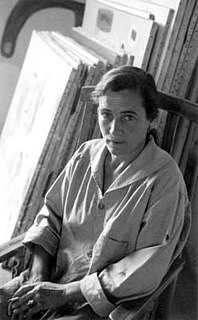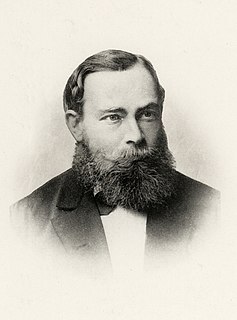A Quote by Herbert Read
The fundamental purpose of the artist is the same as that of a scientist: to state a fact.
Related Quotes
I want to emphasize the fact that we all have the same experience and the same concern, but the artist must know exactly what the experience is. He must pursue the truth relentlessly. Once he sees this fact his feet are on the path. If you want to know the truth you will know it. The manipulation of materials in an artwork is a result of this state of mind. The artist works by awareness of his own state of mind.
The significance of a fact is relative to [the general body of scientific] knowledge. To say that a fact is significant in science, is to say that it helps to establish or refute some general law; for science, though it starts from observation of the particular, is not concerned essentially with the particular, but with the general. A fact, in science, is not a mere fact, but an instance. In this the scientist differs from the artist, who, if he deigns to notice facts at all, is likely to notice them in all their particularity.
The books of the great scientists are gathering dust on the shelves of learned libraries. And rightly so. The scientist addresses an infinitesimal audience of fellow composers. His message is not devoid of universality but its universality is disembodied and anonymous. While the artist's communication is linked forever with its original form, that of the scientist is modified, amplified, fused with the ideas and results of others and melts into the stream of knowledge and ideas which forms our culture. The scientist has in common with the artist only this: that he can find no better retreat from the world than his work and also no stronger link with the world than his work.
Every artist, every scientist, must decide now where he stands. He has no alternative. There is no standing above the conflict on Olympian heights. There are no impartial observers. Through the destruction, in certain countries, of the greatest of man's literary heritage, through the propagation of false ideas of racial and national superiority, the artist, the scientist, the writer is challenged. The struggle invades the formerly cloistered halls of our universities and other seats of learning. The battlefront is everywhere. There is no sheltered rear.
'Facts, facts, facts,' cries the scientist if he wants to emphasize the necessity of a firm foundation for science. What is a fact? A fact is a thought that is true. But the scientist will surely not recognize something which depends on men's varying states of mind to be the firm foundation of science.
Every little thing has a purpose, at the same time, it has no purpose because this whole thing is a game. It is the existence which is total, beyond purpose. So you can say, virtually there is no purpose. If at all you have to pin down to a purpose then the purpose of nature is to take you to the Source, is to remind you of the Source, connect you to your Source.
As long as the artist invents and is inspired, he remains in a constrained state of mind, at least for the purpose of communication. He then wants to say everything, which is the wrong tendency of young geniuses or the right prejudice of old bunglers. Thus, he fails to recognize the value and dignity of self-restraint, which is indeed for both the artist and the man the first and the last, the most necessary and the highest goal.






































